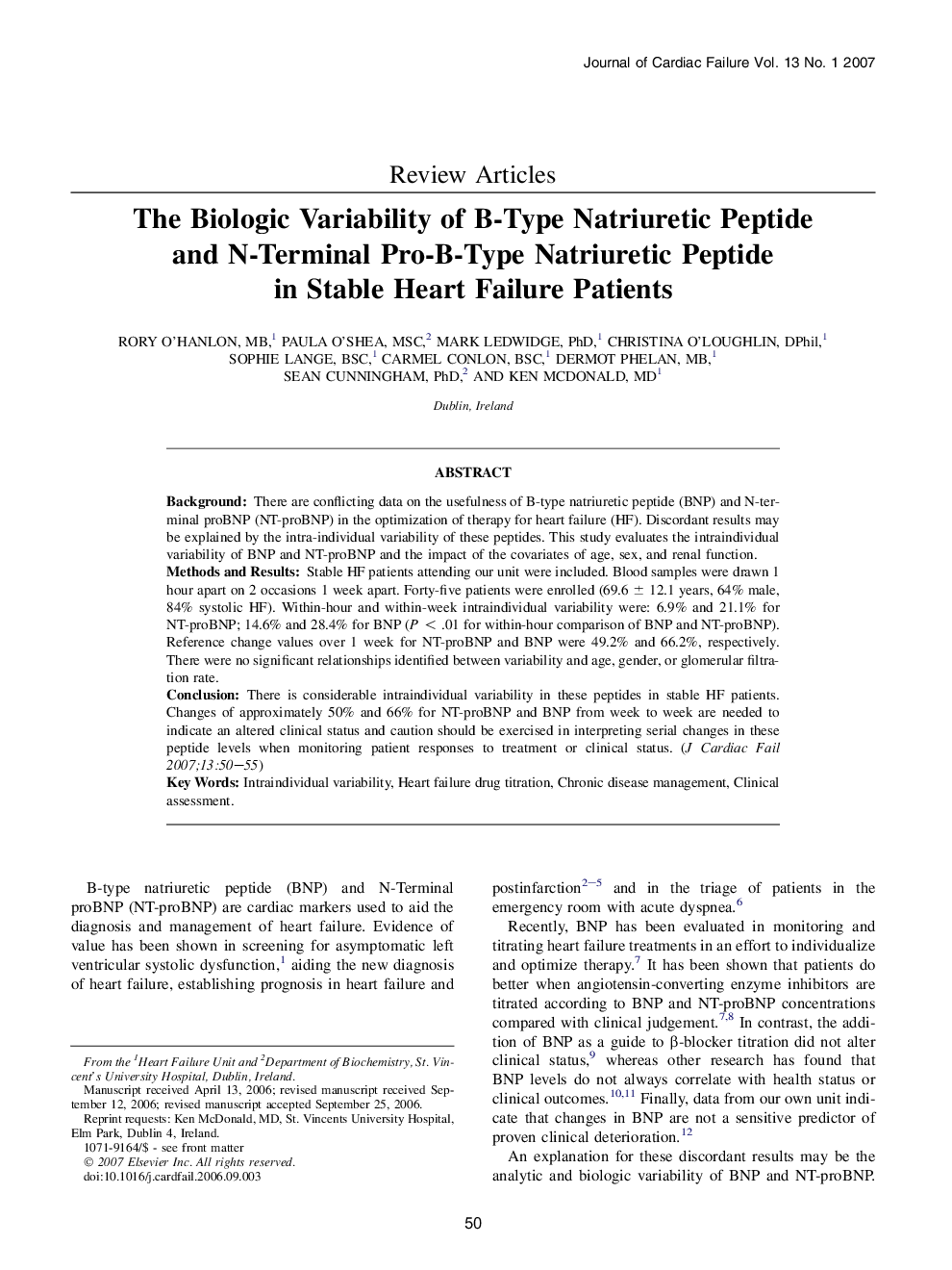| Article ID | Journal | Published Year | Pages | File Type |
|---|---|---|---|---|
| 2960427 | Journal of Cardiac Failure | 2007 | 6 Pages |
BackgroundThere are conflicting data on the usefulness of B-type natriuretic peptide (BNP) and N-terminal proBNP (NT-proBNP) in the optimization of therapy for heart failure (HF). Discordant results may be explained by the intra-individual variability of these peptides. This study evaluates the intraindividual variability of BNP and NT-proBNP and the impact of the covariates of age, sex, and renal function.Methods and ResultsStable HF patients attending our unit were included. Blood samples were drawn 1 hour apart on 2 occasions 1 week apart. Forty-five patients were enrolled (69.6 ± 12.1 years, 64% male, 84% systolic HF). Within-hour and within-week intraindividual variability were: 6.9% and 21.1% for NT-proBNP; 14.6% and 28.4% for BNP (P < .01 for within-hour comparison of BNP and NT-proBNP). Reference change values over 1 week for NT-proBNP and BNP were 49.2% and 66.2%, respectively. There were no significant relationships identified between variability and age, gender, or glomerular filtration rate.ConclusionThere is considerable intraindividual variability in these peptides in stable HF patients. Changes of approximately 50% and 66% for NT-proBNP and BNP from week to week are needed to indicate an altered clinical status and caution should be exercised in interpreting serial changes in these peptide levels when monitoring patient responses to treatment or clinical status.
